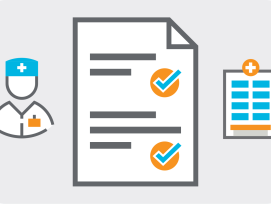CHIA Reports on Clinical Quality Performance Measure and Patience Experience Survey Results

DATE: August 21, 2024
The Center for Health Information and Analysis (CHIA) today published its report on select clinical quality performance measures drawn from the Healthcare Effectiveness Data and Information Set (HEDIS®) and the Massachusetts Health Quality Partners (MHQP) Patient Experience Survey (PES). These performance measures are used to examine health care quality outcomes and patient-reported experiences with primary care visits within the Commonwealth.
This publication includes an analysis of select HEDIS measures for reporting years 2020 and 2022 and PES composites for reporting years 2021-2022 within the commercial market. New to this year’s report, statewide PES results stratified by race and ethnicity are available for 2022 performance to examine disparities in patient-reported experiences.
CHIA has also produced an interactive dashboard with provider-specific HEDIS and PES results at statewide, parent provider group, and medical group levels, including geographic results for HEDIS measures at the medical group and practice site levels.
Key Findings:
-
Statewide adult patient experience ratings with primary care providers varied by race and by ethnicity, with Asian and Black patients reporting lower satisfaction than White patients in many care domains. The largest difference observed was for the Adult Behavioral Health domain; White patients rated their primary care experience 75.3 out of 100, compared to a score of 65.6 among Asian patients, and 68.4 among Black patients that responded to the survey.
-
Of the 18 HEDIS measures with scores available for a two-year measurement period, 13 improved since 2020. Immunizations for Adolescents (Combo 2) was the most improved measure, increasing by twenty percentage points from 28.5% in 2020 to 48.5% in 2022.
-
Communication was the highest-rated composite for pediatric primary care visits in 2022, followed by Willingness to Recommend (98.2 and 96.2, respectively).
This publication includes an executive summary, interactive Tableau dashboard, analytic dataset, and technical appendix.
